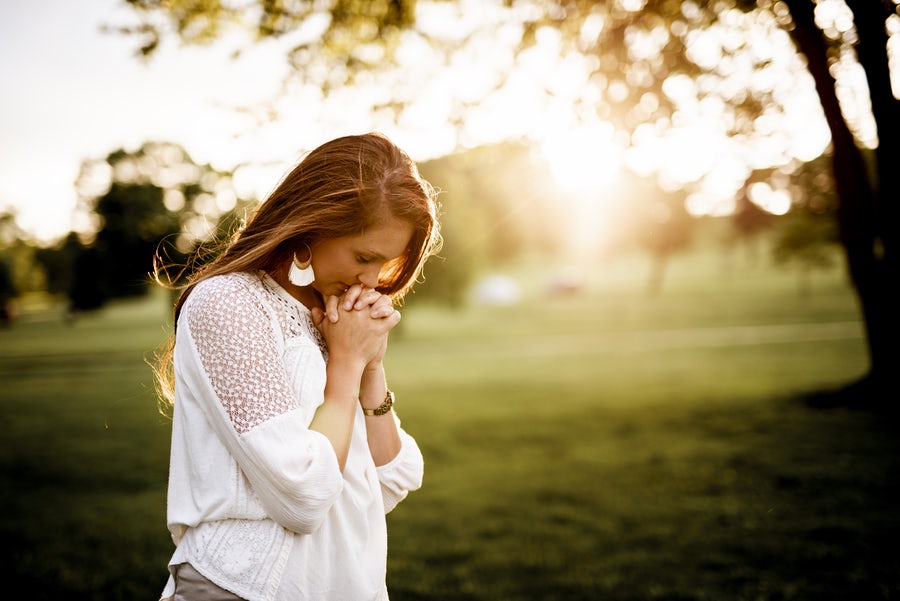Houses of worship and religious organizations need the freedom to undertake their religious mission as it relates to worship, education, and other charitable activities. The ideal way to ensure such freedom is with a robust account of religious freedom that respects the religious identity and integrity of a religious community as it performs its religious mission.
Part of this will require certain legal exemptions for religious organizations to enable them to preserve their unique ethos and identity. However, in the wake of the redefinition of marriage, and in tandem with other voices calling for a marginalization of religion in the public square, some are calling the legitimacy of those exemptions into question.
Recent developments in the United States and in my native country of Australia illustrate the deep divisions that underlie this debate, and the serious negative consequences that will occur if religious freedom is further curtailed in the years to come.
The Rise of Secular Fundamentalism in the United States
Start your day with Public Discourse
Sign up and get our daily essays sent straight to your inbox.In a 2016 report called Peaceful Coexistence: Reconciling Nondiscrimination Principles with Civil Liberties, Martin Castro, Chairman of the United States Commission on Civil Rights (USCCR), argued that:
The phrases “religious liberty” and “religious freedom” will stand for nothing except hypocrisy so long as they remain code words for discrimination, intolerance, racism, sexism, homophobia, Islamophobia, Christian supremacy or any form of intolerance . . . This generation of Americans must stand up and speak out to ensure that religion never again be twisted to deny others the full promise of America.”
While the report does not enact any government policy, it is a clear shot across the bow of religious freedom. Castro sees religious freedom as nothing more than a right to discriminate against sexual minorities, and it is a right that needs to be curtailed.
Whereas international law typically maintains that religious freedom can be limited only as “necessary to protect public safety, order, health, or morals or the fundamental rights and freedoms of others” (International Covenant on Civil and Political Rights § 18), the USCCR report brazenly seeks to legitimate a far more expansive limitation of religious freedom and cognate freedoms.
This report was no flash in the pan: the same sentiments were clearly expressed, whether consciously or not, in the 2016 Democratic Platform Committee, which proposed to enact a “progressive vision of religious freedom that respects pluralism and rejects the misuse of religion to discriminate.” This is not religious freedom according to the Constitution or the rule of law, but a religious freedom cordoned by the canons of intersectionality.
Australia
Things are not much different in my native Australia. Current battles center on religious education, particularly the hiring decisions of religiously affiliated schools.
First, one political party, the Australian Greens, has promised to remove religious exemptions to anti-discrimination laws. Second, in the state of Queensland, where “inherent requirements” legislation has been passed, advice from the Anti-Discrimination Commission of Queensland has indicated that faith-based schools cannot ask prospective employees or students what their religious beliefs are, which effectively prevents religious schools from insisting on a religious requirement for their faculty, staff, or student body (see CSA & ASA Joint Submission to Expert Panel on Religious Freedom, p. 11). Third, the Guardian Australia (a left-leaning online newspaper) has been very active in propagating the case for ending the ability of religious schools to discriminate in their hiring practices.
The Australian government has commissioned former attorney general Philip Ruddock to lead the Religious Freedom Review for the purpose of advising the government on whether and how religious freedom safeguards need to be updated in our context where LGBTI+ rights are increasingly coming into conflict with religious liberties. The report has been submitted, and the Australian government is due to release its response in August. One of the issues that is expected to be addressed in the report is inadequacies of anti-discrimination exemptions to maintain religious freedom.
Four Arguments in Favor of Religious Exemptions
In the absence of a more comprehensive and robust protection of religious freedom, let me give four arguments in favor of religious exemptions to anti-discrimination legislation.
First, we should remember the purpose for which exemptions to anti-discrimination legislation were granted to religious bodies, that is, to safeguard their freedom to operate with their religious ethos.
The exemptions were not begrudgingly granted to appease barely tolerable religious bigots, but were regarded as necessary to enable religious organizations to be governed and operated according to their religious traditions. The exemptions for religious bodies were granted back in the 1970s and 1980s, long before same-sex marriage was an issue, and they were granted for plainly sensible reasons. The exemptions mean that a Christian school can insist on hiring Christians who adhere to Christian beliefs and practice Christian values. The same goes for a Muslim youth organization or for a Jewish charity. Catholics cannot be forced to ordain women to the priesthood, and a Muslim relief agency can insist that either all or some of its key officers be Muslims in good standing in the Muslim community. That kind of discrimination is reasonable, because it is necessary for a religious organization to be religious!
To remove the exemptions would be tantamount to stripping groups of their right to operate organizations as religious entities with a religious ethos. In other words, religious organizations would either have to shut down or be sanitized of religion in order to meet anti-discrimination requirements. One must wonder if the campaign to end the anti-discrimination exemptions is about ending discrimination or obliterating religious organizations.
According to the Universal Declaration of Human Rights, all persons have the right to “manifest” religion in “teaching, practice, worship and observance” including “in community with others.” The exemptions are, for the moment, necessary so as to be able to undertake the communal aspect of religious freedom. Yet rather than frame the issue as religious freedom to discriminate, I think it would be wiser to describe the issue as religious communities wanting to preserve the religious identity of their houses of worship and associated institutions. The fundamental concern of religious communities is not power to discriminate, but the ability to maintain who they are and to be able to operate according to their faith principles.
Second, religious organizations are not the only entities that enjoy exemptions to anti-discrimination legislation. Political parties, at least in Australia, enjoy such exemptions. That is why political parties can insist on political affiliation and policy agreement for their hiring policies. One has to ask whether it’s fair that politicians and political parties can be granted exemptions to anti-discrimination legislation, but religious bodies cannot.
Third, we also have to engage in what I call the “Shoe on the other Foot” objection. Should the Sydney Gay and Lesbian Mardi Gras (SGLMG) be forced to hire a Muslim or Christian, with traditionalist views on marriage and sexuality as, say, their communications director? Well, if you are committed to ending ALL discrimination, then you have to say “yes.” Of course, if you apply some common sense, and realize that this is probably not a good idea, then maybe we need to negotiate on how partisan organizations—in politics, religion, and culture—remain free to operate according to their ethos and viewpoints. I would not want to force the SGLMG or any LGBT charity to hire someone whose personal convictions are contrary to the organization’s beliefs and values.
Fourth, we must emphasize that removing religious exemptions will not promote tolerance or inclusiveness. On the contrary, it will make religious minorities feel resented, despised, and alienated. Do you really think forcing a Muslim school to hire a gay Jewish atheist as its vice-principal is going to be warmly received in the Muslim community? Do you think the school’s board, administrators, teachers, students, families, and local imams are going to be happy about this? No. Such an imposition will breed contempt for those who imposed it. Such an act will not promote pluralism and diversity. It will promote ethnic and religious tensions, create an us vs. them mentality, and foster socio-religious division. The same would go for any Christian organization or Jewish charity facing any state imposition adversely affecting its ethos and operation.
If you want to promote tolerance and diversity, how about this for an idea? Instead of forcing a Muslim school to hire someone who opposes its religious principles, how about you invite the principal, teachers, and students from a Muslim school to participate in a dialogue with LGBTI teenagers and their advocates?
The current suite of religious exemptions to anti-discrimination laws could be swept aside and replaced with more robust protections of religious freedom defined not by what is exceptional but a positive account of freedom of thought, speech, conscience, and association. In the long run, exemptions should be replaced by vigorous reasonable legislation for religious freedom modelled on the Universal Declaration of Human Rights and the International Covenant on Civil and Political Rights. The aim would be to simply put into law what religious communities and organizations have always—until recently—had the freedom to do. However, until such a time, anti-discrimination exemptions are in many places the only bulwark protecting religious communities against litigation and punitive actions by state actors who are attempting to cabin religious liberty in favour of a deliberate totalizing agenda.
Ultimately, the debate over religious freedom is a battle over the meaning and practice of pluralism (see John Inazu, Confident Pluralism). It comes down to this: do we consider ourselves a politically progressive society where religious organizations must be forced to “evolve” in their beliefs, as one Californian legislator insisted, and so demand the conformity of people’s religious conscience to progressive orthodoxies by threat of punishment? Or, do we recognize that pluralism means the freedom to be different without fear of reprisal?
If we are not willing to accommodate religious groups—be they Jews, Christians, Muslims, or Hindus—to have the space and freedom to practice their faith, then any pretentions to pluralism are clearly empty rhetoric, devoid of any real commitment to freedom, the right to dissent, and the ability to live out one’s faith.













